With the cost of drama soaring and UK scripted tariffs staying put, what needs to happen for prices to come down and the gap between greenlight and the start of production to close significantly?
When Tom Hiddleston slinks back onto screens as British spy Jonathan Pine in series two of The Night Manager, he’ll have new global representation: Amazon Prime Video.
Back in 2016, when the globetrotting BBC drama premiered, Prime Video was still in the early stages of its originals strategy, and comfortable taking second window in the US after AMC, which was then a major co-production partner for UK shows. Distributor IMG (now Fifth Season) took the show overseas and grabbed headlines for an estimated £36m in sales.
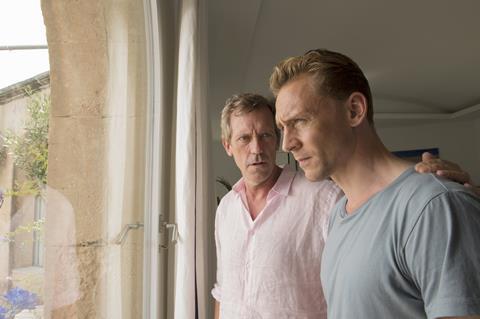
Today, the peak TV era that the John Le Carré drama once embodied has been and gone. When it makes its long-awaited return in late 2025 or early 2026, Prime Video – now well known for action thrillers such as Jack Ryan, Cross and Reacher – will launch the high-octane spy drama across its global territories simultaneously with the BBC in the UK.
The Night Manager producer The Ink Factory’s relationship with AMC remains strong (they partnered again on 2018’s Little Drummer Girl), but the indie’s co-chief executive – and son of Le Carré - Simon Cornwell says of the cable channel: “We couldn’t land the show at a price that made sense for them.”
Do drama prices make sense for anyone any more? By 2019, 123 high-end dramas had triggered the UK tax credit with budgets in excess of £1m an hour, but the pandemic, streamer spending, double Hollywood strikes and inflationary pressures have piled on eye-watering costs since then. Most producers need to get creative to make anything for less than £3m, and US partners that once stepped in with sizable co-pro contributions are recalibrating their own content strategies, leaving producers scrambling to fill the financial void.
“There’s a certain budget level beyond which a terrestrial co-production between two or more commissioning territories becomes untenable,” says Arvand Khosravi, senior vice-president and head of scripted television strategy at distributor Fifth Season, which oversaw The Night Manager’s Prime Video deal.
“The conversation becomes: ‘This is going to have to go to an SVoD.’ That calculation is certainly different than even three years ago.”
Imagine, then, returning to a show after almost a decade. At roughly £3m per episode, series one of The Night Manager was the most expensive drama in BBC history at the time. Series two “travels even more than the first season” and is “a lot more expensive”, says Cornwell, but he stops short of saying by how much.
Rethinking the genre
Yet in a year when Netflix’s top dramas worldwide are British shows Fool Me Once and Baby Reindeer – two series without A-list talent, made for far less than £3m an hour – many in the drama world are beginning to rethink the drive for well-known names, reconsider the types of stories that will resonate with audiences, and recalibrate the size of budget needed to land them a hit show.
At the recent RTS London conference, Sister chief creative officer Jane Featherstone sat mere feet away from Netflix co-chief executive Ted Sarandos and declared on stage that “most of us don’t want to be producers for hire”. Over 15 years at Kudos, she shepherded returning dramas such as the BBC’s Spooks and Channel 4’s Humans – series on which she built a business thanks to the Terms of Trade and IP retention.

Over Sister’s first decade in business, however, its slate has leaned into streaming, with three shows on Netflix this year alone. Abi Morgan’s gritty, 1980s New York-set limited series Eric was critically acclaimed. A second series of Joe Barton’s Black Doves was confirmed in August, months before series one’s December premiere. But Netflix pulled the plug on Charlie Covell’s Kaos six weeks after release, bewildering fans who argued that was not enough time to establish an audience.
Kaos’s fate is entwined with the wider structural issues facing drama, says Featherstone. “It was a very expensive show, commissioned in 2018 when budgets were higher than they are now. Overall, the cost wasn’t sustainable for future series, given the reach it had – which was good, but not exceptional.”
Kaos was expensive “in its bones”, she says. “You couldn’t do a cheaper version. For Netflix, its cost versus reach was not an equation that made sense” . (The streamer declined to be interviewed.)
Featherstone says drama producers must accept they have benefited from high budget levels. Those working within the streamers’ cost-plus model receive a “percentage premium” – when budgets were sky-high, that could be a lucrative one-off upfront fee.
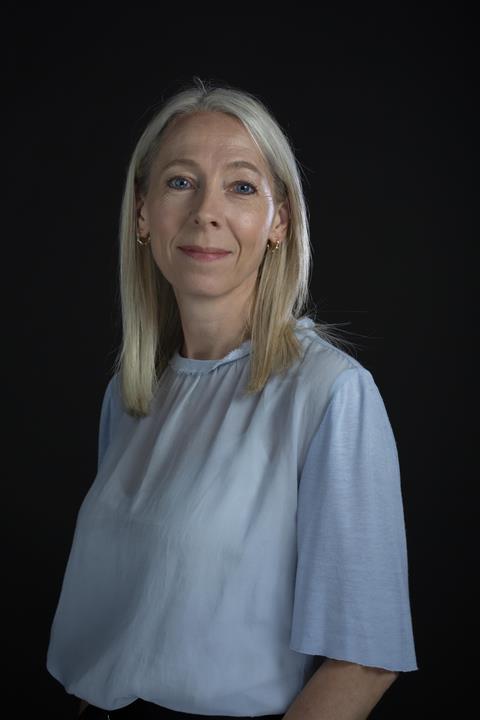
On the flipside, no back-end profits means cost-plus deals lack an upside if a show is a hit. Furthermore, as streaming budgets have come down by an estimated 40%, according to many sources, the model has eroded.
“The percentage is capped, so it’s hard to know how that’s going to sustain,” says Featherstone. “Sustainability, particularly for the British production sector, has become almost impossible.”
Big Talk Studios chief executive Kenton Allen similarly observes: “There was a period in which you could write anything: scene one starts on the moon; scene two is underneath the Atlantic Ocean; scene three is in the 18th century. Those days aren’t over, but you’re not going to fund that show with your BBC licence fee, tax credit and distribution partnership.”
Big Talk recently landed a monster hit for the BBC with cosy crime comedy-drama Ludwig (pictured top), starring David Mitchell and Anna Maxwell Martin. Commissioned by Jon Petrie’s comedy team, it went into production fully financed through a combination of BBC licence fee, ITV Studios distribution advance and tax credits. BritBox boarded the project at script stage.
Made for just under £2m per episode, and written with Peep Show star Mitchell in mind, Ludwig’s opener drew 9.5 million viewers to BBC1 after 28 days, becoming the BBC’s most successful scripted launch since 2022, and its biggest new comedy since 2018.
Allen says part of the show’s success is down to Big Talk’s laser focus on knowing what budget it is developing for: whether it’s an ambitious SVoD streaming play, or for a PSB with or without a co-producer. “You have to have those conversations from the get-go,” he says.
The BBC, ITV or Channel 4 will pay up to £1m-£1.2m an episode, and the most a domestic distributor will contribute is £500,000 an episode, says Allen. If you need more from a distributor, “they’re going to want to find a US pre-sale or co-pro partner, and then you have the tax credit on top of that”.
Inflated costs
Without a co-pro partner, but with a domestic distributor attached, the budget falls somewhere between £1.8m and £2m per episode, says Allen. “Anything more than that, and you’re either asking for an increased licence fee from your domestic PSB, or for the distributor to pay more than £500,000 an episode, unless you go the co-pro route.” The “sweet spot”, he says, lies between £1.85m and £2.15m.
The problem, according to Me+You Productions co-founder Krish Majumdar, is that “everything is inflated”. Locations, crews and talent all simply cost more, and it’s difficult to get your budgets down.
The I Am Ruth producer adds: “If you’re over £3m and [a distributor] says, ‘Can you get this down by £500,000 to £600,000 an episode over the series?’, that’s a huge amount. You have to reconfigure the whole thing. Sometimes it’s just not possible because it would change the nature of the show.”
“The market has softened a lot over the past 24 to 30 months, but costs simply haven’t come down”
Simon Cornwell, The Ink Factory
Multiple producers bemoan the exorbitant costs of locations and the significant rise in crew rates caused by the influx of streaming shows filmed in the UK during the post-Covid production boom.
Cornwell observes: “The market has softened a lot over the past 24 to 30 months, but costs simply haven’t come down. I used to believe in supply and demand; I’m not sure I do any more. In the UK, there are fewer people working, but those who are working are still being paid a lot of money.”
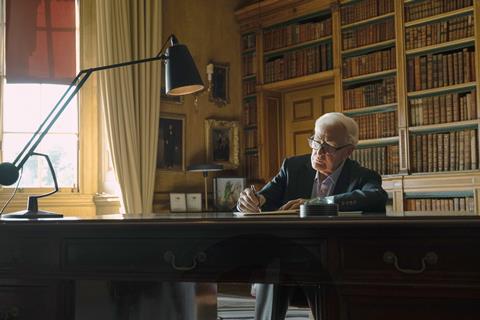
While Cornwell describes The Night Manager as a “quintessentially British” show, Spain will double for some UK locations. Similarly, for The Ink Factory’s Apple TV+ Le Carré documentary The Pigeon Tunnel, all UK scenes were filmed in Hungary.
“We could shoot for five days in Hungary for the same price as two in the UK,” notes Cornwell. “The British don’t have a monopoly on skills and competence. In Budapest, Prague, Barcelona and Madrid, the crews are every bit as good.”
Quay Street Productions chief exec Nicola Shindler says it’s unlikely people will want to take less money “because I understand why they wanted more in the first place”. Even so, she warns, “there will be less work if everything remains as expensive as it is now”.
Most producers tell Broadcast that a significant part of the financial compromise required to lower drama costs will involve a readjustment of how the industry courts talent.
In the peak TV era, it was fashionable to cast A-listers to attract viewers and subscribers, and help marketing departments drive sales for distributors. But booking big stars to return for a second or third series can require a herculean effort from producers also beholden to a buyer’s (increasingly volatile) early financial commitment to multiple series. As more shows without household names have broken through on the weight of their ideas or execution, producers are calling for a reconsideration of the talent model.
“There’s going to have to be a realistic reset. We cannot keep going with only massive actors getting shows greenlit”
Nicola Shindler, Quay Street Productions
Featherstone says: “We have to be prepared to walk away where the deals don’t make sense. We have to be a bit braver at saying, ‘This budget simply can’t sustain that level of fee [for a lead actor]’.”
Shindler agrees: “There’s a lot of talk about what the movie poster for each TV show is. There’s going to have to be a realistic reset. We cannot keep going with only massive actors getting shows greenlit. The price of those actors has gone up, and I can’t see it coming down.”
Shindler’s Harlan Coben adaptations, first for Red Production Company and now for Quay Street, typically feature British actors who are recognisable to UK audiences but are not, in the main, household names.
Fee bands
Many producers point to the success of these dramas, including Netflix smash Fool Me Once, as proof that A-list talent shouldn’t be a pre-requisite for a greenlight, and that top shows can be made on healthy budgets.
They’re all Band 2 shows, which cost between £1.25m and £3m per hour – effectively the same, with inflation, as Red’s first Coben series, Sky 1’s The Five, in 2016, Shindler points out.

An alternative model, used on some long-running US series, offers a range of fees for a particular role. Applied to the UK system, Shindler says, this would mean linking actors’ fees with drama’s band system. They would receive a certain range of fee depending on whether they were being considered for a Band 1 (up to £1.25m per hour), Band 2 (£1.25m-£3m), Band 3 (£3m-£8m) or Band 4 (£8m and up) show.
“When there was more money, you’d go to the international distributor and say, ‘Is this actor worth more to you? Can we get more money for them?’” she explains. “But if there isn’t any more money, people are going to have to accept a role [and fee]. If we’re trying to do long-running shows at lower rates, this might be a way forward.”

The agency and management perspective is less clear-cut. One agent says their mid-sized agency is “absolutely pushing” for A-list clients’ rates to remain in line with fees on previous projects. “Even though so little is being made, we can’t afford to settle for anything less than their usual quotes, because otherwise, it’s the thin end of the wedge.”
Where there is more flexibility, adds the agent, is among “mid-range” clients who’ve secured some series lead roles but are still fairly low-profile. It’s harder for agents to secure jobs for these actors because, amid the commissioning slowdown, the roles they might otherwise have landed are now going to Oscar- and Emmy-nominated A-listers.
“For them, we’ve had to have long, difficult conversations about the state of the industry and potentially taking a job that’s a bit of a step back financially but will help them keep building up credits and keep the momentum going,” says the agent.
The agent admits that more producers are pushing back on actor fees because the shows “literally cannot afford any more”. They’re amenable to the idea of different brackets of fees for varying drama bands as “a potential way of getting the middle of the business in a better place of health”.
For a sub-£2m production, two leads may be paid £25,000 an episode, while other roles – such as regular, semi-regular or guest roles – are then scaled on a tiered system. “I can see how that structure would help actors in the middle to return to a decent amount of work instead of blowing the bank on movie-poster names to sell the show,” the agent says.
Talent flexibility
The issue, they note, is that buyers are still greedy for big names. “Because there’s so little around, they say, ‘We can go for the crème de la crème’. Even if they say no, buyers still want people with a significant profile,” says the agent.
A band model could also bring too much rigidity to the system, they argue. “There really needs to be wiggle room for our clients and their fees. There is potential for a band model to be exploited, where a producer, network or streamer holds people for ransom and says, ‘This is the fee and that’s it’.”
Cathy King, a long-time partner with British management and production company 42, whose writer clients include Downton Abbey creator Julian Fellowes, says talent “is interested in being flexible, but we need transparency”.
With different ways of making a show, says King, it’s difficult to come up with a ‘one-size-fits-all’ deal. “So how do we navigate that challenge? None of us want to price people out of the marketplace, but you don’t want to be losing certain things you had before without some sort of quid pro quo.”
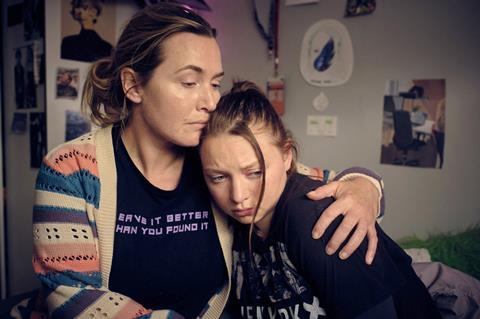
Fifth Season’s Khosravi says he “never walks away from talent” and tries “every which way” to make an arrangement work. In negotiations, the long-time Endeavor executive and former WME agent is increasingly suggesting “non-traditional” ways for talent to participate in the success of a show, particularly if there are lower broadcast tariffs.
In these scenarios, talent is “not necessarily taking the big, splashy upfront fee they might normally expect if they were working in the more traditional system, but rather getting a respectable fee up front, and then participating in a real way on the back end”.
Echoing recent complaints made by distribution executives such as Banijay Rights’ Cathy Payne and Fremantle’s Jens Richter, Khosravi says he’s having “tough conversations” with producers to bring budgets down.
“The name of the game is getting them to figure out the most cost-effective way of making the show,” Khosravi says – whether that’s a granular understanding of soft money tax credits overseas, or changing the creative of a show to better suit a distributor’s financial model, where it makes sense to do so.
But producers aren’t the only party in the chain that needs a reality check. “More than ever, we’re having those conversations with commissioners directly in terms of what’s possible and how we can support what they’re greenlighting,” says Khosravi.
Is a broadcast greenlight becoming more of a creative greenlight? “For some commissioners, that seems to be the case,” he admits.
BBC director of drama Lindsay Salt counters that a greenlight from the BBC has “incredible market value” that can help secure extra finance. Distributors have been “amazing” in the past year, she says, “but we can’t take advantage of that”.
Does the former Netflix executive, who joined the BBC in 2022, feel a responsibility to help lower drama budgets? Could she, perhaps, only ask for shows with sub-£3m budgets? “We commission more than anyone else within the UK; there’s no hard and fast rule,” she says. “I never want to say, ‘We won’t commission a show with a budget of over X amount’ because I don’t want to stop people being ambitious.”
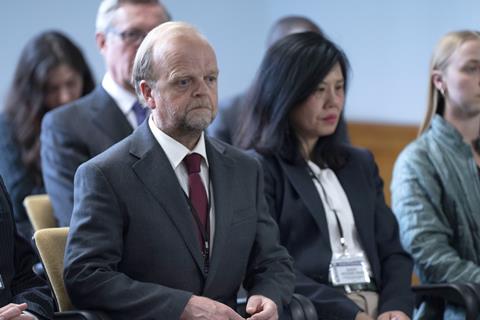
Nevertheless, big-budget shows carry more responsibility. “They’re being taken to the same buyers and the companies are competing. We’re really thoughtful about when we do them and how many we do, so they’re not competing with each other.”
ITV director of drama Polly Hill says she’s exempt from such considerations as all her shows range from “low £2m to high £2m”.
During the peak TV era, when drama budgets were skyrocketing, “it looked like we weren’t able to keep competing at that level, and that was my worry”, she admits. “What’s happened recently is everybody’s coming around to thinking, ‘There is room for everything, but we need to hang on to being able to tell stories for under £3m.’”
Domestic focus
Hill is proud she got groundbreaking drama Mr Bates vs the Post Office off the ground despite a lack of international sales. “It’s really important for the industry that we continue to make shows that are very, very British and aren’t looking for big international sales.”
But PSBs can only do that if budgets come down, says Channel 5 head of drama Sebastian Cardwell.
“In a UK environment that’s removing continuing dramas, shutting down Holby City and reducing Hollyoaks – shows where people cut their teeth – lower-cost drama could be those shows.
“We’re so obsessed with high-end and premium. Yet if the tax credit doesn’t activate until you go above £1m, then I’m not sure how we’re going to fund those types of shows going forward.”
“We’ve been lulled into thinking we have to have big Hollywood names, but I’m not sure that’s actually what most viewers respond to”
Sebastian Cardwell, Channel 5
The executive, who has spearheaded C5’s drama strategy since 2020, says streamers pushing up prices affects him acutely. The channel has the lowest drama budgets of the PSBs: between £800,000 and £1.5m an hour (Paramount+ UK originals’ budgets are higher, at around £1.2m to £2.5m).
“We’ve been lulled into thinking we have to have big, splashy Hollywood names in lots of homegrown dramas, and I’m not sure that’s actually what most viewers respond to,” he says.
One adjustment on the rights front that could ameliorate pressures for distributors and producers is more flexibility from broadcasters around the secondary rights window in the UK. Given the channels have invested heavily in bolstering their streaming services, more openness in the second window might seem to fly in the face of corporate strategy. But producers have long argued that it would give distributors more confidence in their advances.
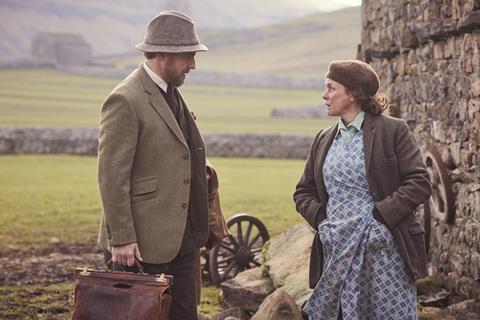
C5 has perhaps more flexibility than elsewhere: all five series of Playground Entertainment’s hit Yorkshire vet drama All Creatures Great And Small are on My5 (soon to be 5), but the first series is also now streaming on Netflix in the UK.
The BBC has two high-profile streamer co-pros lined up: World Productions’ Lockerbie with Netflix and The Night Manager with Prime Video. Could this give way to more?
There’s an “openness and willingness to partner,” says Salt. “There’s no model we’re not exploring.” She won’t, however, go into the specifics of the “precise windowing” for Lockerbie, which will provide a crucial glimpse into the premium the BBC now puts on iPlayer.
ITV’s Hill speaks more plainly of the secondary rights dilemma: “When we buy for the UK, we’re paying a decent amount to put it out in the UK, so you can’t compromise that window. We need to put it out in the UK on our platform, and not have it on others. But I think that’s okay; I don’t think that’s stopping shows from being made for the moment.”
It may not be a deal-breaker, but most producers and distributors argue that broadcasters will need to overcome their reticence around the secondary window if they want the money to finance their shows. “This is the only way we’ll carry on making things that look great,” says Shindler. Everyone has a part to play in bringing drama costs back down to earth, adds Featherstone.
“We as producers have to try to bring budgets down. We have to be creative and resourceful. It helps to work with a buyer who’s prepared to back talent that isn’t as expensive, and to potentially commit to a second series. When you have a success, you can build something and amortise costs and be more efficient. We have to make returning drama fashionable again.”

































No comments yet